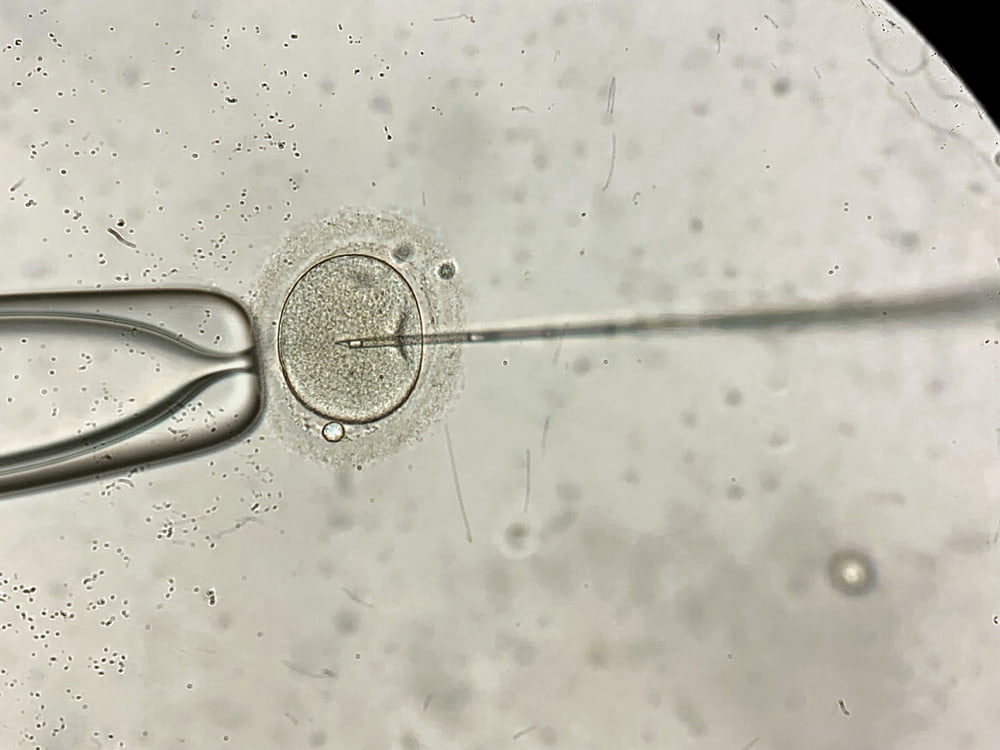
We’ll explore female fertility, the best years for conceiving a child, and whether there is a maximum pregnancy age limit. We’ll also tell you about IVF and ICSI, two medical fertility programs that can increase the chances of conceiving, especially in older women.
A female’s fertility is directly tied to the aging process. A female fetus has around four million eggs. By the time the baby is born, the number of eggs has dropped to one or two million, and these are all the eggs she’ll ever have. The number of eggs steadily decreases throughout the initial years of her life by about ten thousand per month. When a female reaches puberty, the monthly loss slows to about one thousand. At this point, she has between three hundred and four hundred thousand eggs. Although she has just reached puberty, age has already affected her fertility.
Why is it Easier for Younger Women to Conceive?
The reason younger women can conceive more easily is mainly due to the mathematics of probabilities. A woman’s peak years for conceiving a child are between the late teens and late 20s. This is the age when her ovaries are fully developed, and she still has a large number of oocytes.
Women in their 20s have a 25-30% chance of getting pregnant every monthly menstruation cycle. Fertility begins to decline after age 30, and the decline speeds up after age 35. By age 40, a woman’s chances of conceiving fall to 5%. By age 45, it’s very unlikely for a woman to conceive naturally. And many IVF programs set age 45 as the maximum pregnancy age limit.
How Does Fertility Physically Decrease as We Age?
The loss of eggs, or oocytes as immature eggs are called, continues throughout a woman’s life due to ovulation or atresia, which is a form of cell death. By the time a woman reaches the age of 40, she has approximately 5,000 to 10,000 eggs left. The oocytes reside in fluid-filled sacs in the ovaries called follicles until they are lost or become mature. However, some personal habits and medical therapies can accelerate egg loss. Smoking accelerates egg loss, and radiation and certain chemotherapies can also play a part in decreasing a woman’s fertility.
How Can a Woman Increase Her Chances of Conceiving?
In vitro fertilization (IVF) is a medical treatment for infertility (which is defined as trying for at least a year to conceive naturally without success). IVF is a lengthy, complex program that can provide better chances of conceiving.
The basics of IVF involve collecting mature eggs from the ovaries, fertilizing them with sperm, and monitoring their initial growth progress in a lab. When one or more of the fertilized eggs begins to develop into an embryo, the healthiest and most promising-looking embryos are transplanted back into the uterus to continue developing naturally. A full cycle of IVF takes around two to three weeks.

The IVF Process
An IVF program can involve several other procedures that are all designed to increase your chances of conceiving a healthy infant. They include:
Infertility Testing
When beginning an IVF program, the first step will be for you and your partner to undergo fertility screening. The testing explores your medical history and background. It provides insights into any areas of concern, such as ongoing medical issues, family illnesses, treatments and potential fertility issues.
Preimplantion Genetic Diagnosis (PGD)
This testing is performed to guard against passing along any genetic abnormalities to the fetus. Women over the age of 35 are recommended to have PGD performed due to their higher risk of producing abnormal embryo genetics. Women with a history of two or more miscarriages before the fetus is carried for 12 weeks, or two or more failures to conceive following assisted reproduction treatment, are also recommended to undergo PGD testing. Three different tests can be performed based on the parents’ medical history. The tests include:
- PGT-A tests test embryos for chromosomal abnormalities. Typically, human embryos have 23 pairs of chromosomes. One of the chromosomes in each pair comes from the egg, and one comes from the sperm. It’s fairly common for embryos to have extra or missing chromosomes, which is referred to as aneuploidy. Down syndrome is a form of aneuploidy that the PGT-A test can reveal.
- PGT-M tests are performed when one or both parents are at risk for a specific genetic condition that could be passed on to their child, when one or both are carriers of an X-linked condition, or when one or both are carriers of the same autosomal recessive condition.
- PGT-SR tests are done when a patient or their partner has a rearrangement of their chromosomes, which is referred to as a translocation or inversion. These people have an increased risk of producing embryos with extra or missing pieces of chromosome, which can result in stillbirth, miscarriage, or giving birth to a child with severe health issues.
Intracytoplasmic Sperm Injection (ICSI)
Another integral procedure used often in an IVF program is intracytoplasmic sperm injection (ICSI). When the eggs are removed from the ovaries to be fertilized, doctors can inject a single sperm into an egg to increase the chances of successful fertilization.
Surgical Sperm Retrieval (SSR)
Surgical sperm retrieval (SSR) is used for male partners with sperm production issues, such as having no sperm in their ejaculate or blockage issues that prevent the release of sperm. The most common SSI procedure uses a fine needle to retrieve the sperm.
Intrauterine insemination (IUI)
IUI is an insemination procedure timed to a woman’s ovulation cycle. A sperm sample is collected on the day of the procedure and washed and analyzed. The most motile sperm are selected and inserted directly into the woman’s uterus. The procedure increases the chances of the sperm reaching the fallopian tubes.
Visit The V-Fertility Center in Bangkok
Vejthani Hospital’s V-Fertility Center in Bangkok has some of the most experienced and qualified fertility specialists in Thailand. We offer a wide range of fertility services to give you the best chances of conceiving.
If you’re having trouble conceiving, please make an appointment to see one of our fertility specialists at V-Fertility Center today.

The team of specialists in obstetrics and gynecology and reproductive medicine





No Comments
Sorry, the comment form is closed at this time.